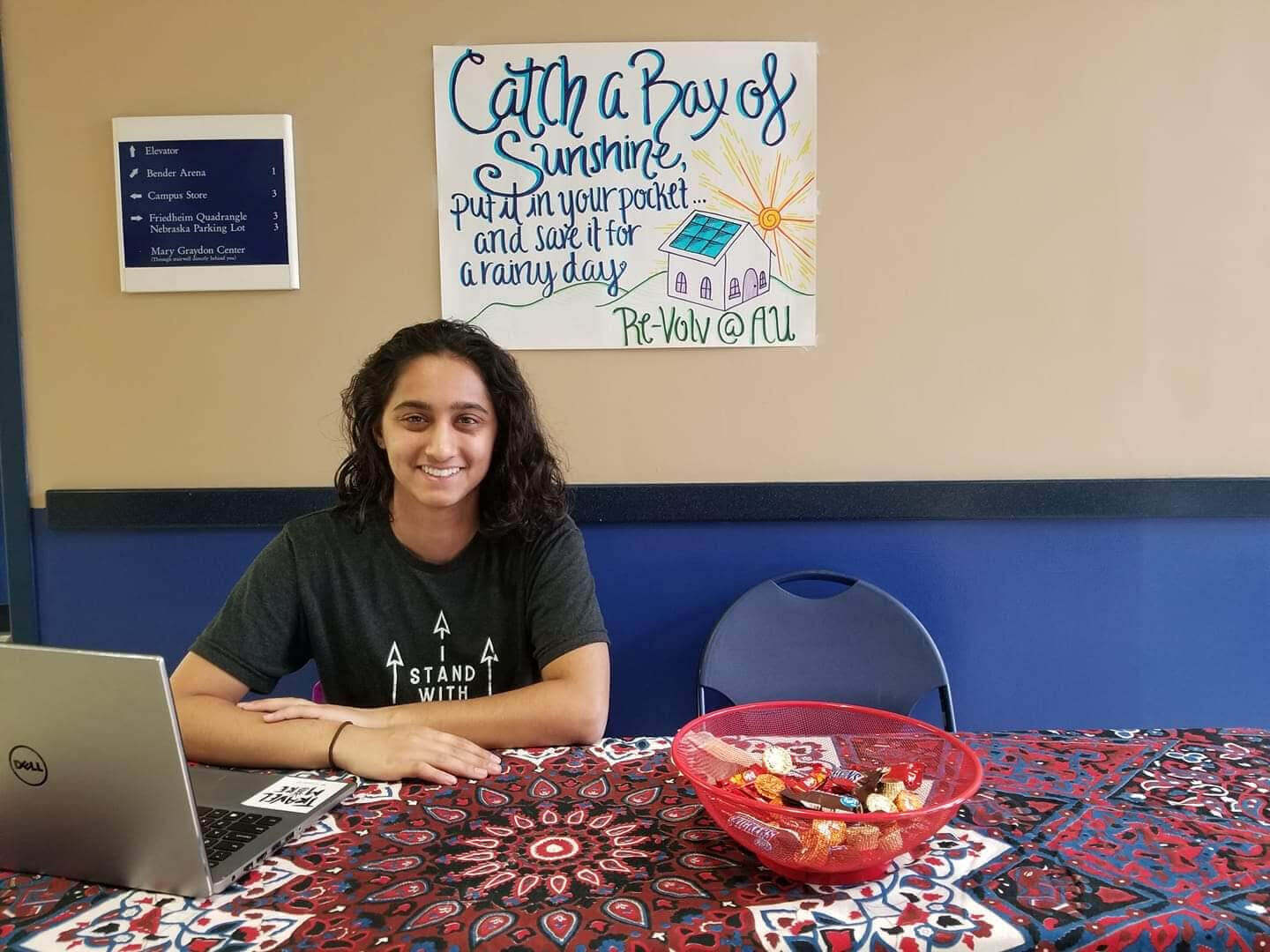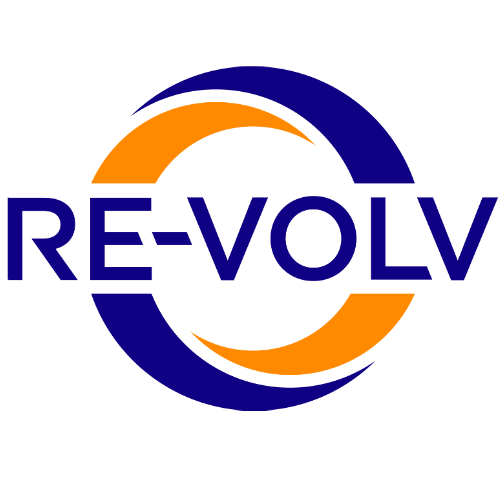Zainab Mirza was a RE-volv Solar Ambassador at American University from 2016-2018. Zainab graduated from American University in 2020 with a double major in International Studies and Environmental Studies. After graduation, Zainab began her career working in clean energy and conservation. Read on to learn about her path from a Solar Ambassador at American University to a renewable energy professional.
What encouraged you to become a RE-volv Solar Ambassador?
The founder of RE-volv, Andreas Karelas, went to American University and one of my most impactful professors, Paul Wapner, is on RE-volv’s Board of Directors. He introduced the Solar Ambassador Fellowship program to students in class. I was interested in the hands-on, tangible experience that RE-volv would provide and being able to understand how clean energy can be more accessible to diverse communities.
What was your experience as a founding member of the Solar Ambassador Team at American University?
I was a part of the founding team of Solar Ambassadors at American University, there were seven of us on the team that first year. We focused on community outreach with the nonprofits in our area. American University is located in Washington D.C., which made it difficult to help nonprofits go solar, because one of the requirements from RE-volv is that the nonprofit has to own their building. Most nonprofits in Washington D.C. do not own their own buildings, because there’s multiple offices per building.
As the founding team at American University, we were navigating that barrier by trying to work with nonprofits outside of Washington D.C. that were interested in going solar. We prepared communication materials and set the groundwork of speaking with community members about this unique opportunity with RE-volv and our team.
What did you work on as a Solar Ambassador at American University?
In addition to nonprofit outreach, we worked to bring an overall awareness of solar energy to members of the community and students on campus. We hosted events during Solar Week where we engaged with students by giving out raffle prizes if they answered solar related questions correctly. We also hosted a movie screening about the solar industry to bring awareness about the need to transition our energy sector. Lastly, we spoke with students on campus to share ideas and recruit them to join our effort.

Zainab tabling on campus to ask students about solar trivia questions. Ifthey guessed correctly they were entered in a raffle to win a solar powered phone charger.
What were some skills that you gained or things you learned as a Solar Ambassador?
As a Solar Ambassador, I gained a great deal of patience. Our experience was rather unique; unfortunately, our solar project was not finalized during my tenure as an Ambassador. At one point we had secured a nonprofit to work with. In the final stages of our agreement, they decided that RE-volv was not the right fit for them. The organization conducted further research and still chose to add solar panels to their building - which we consider a win! Being patient and learning more about our community was valuable in paving the way for the next group of Ambassadors.
What companies have you worked for since graduating from American University?
RE-volv introduced me to the world of clean energy. I've always been involved with environmental work broadly, but this experience made me think more about the clean energy space. After graduating from American University, I joined the Clean Energy Business Network (CEBN) as the Program Associate. CEBN serves as the small business voice for the clean energy economy and represents 5,000 members. I am from Ocean City, Maryland, a small town 150 miles East of D.C. and the community relies on our small businesses so I understood the barriers small businesses face. At the CEBN, I advocated for these small businesses and connected them with critical funding opportunities, so that they can continue to do the work that is critical in the fight against climate change.
Recently, I joined the Center for American Progress as the Ocean Policy Research Assistant. I will be working on an expansive portfolio including offshore wind. I’m excited to work on ocean policy and bring my prior experience in clean energy policy to the table.
What is one of your favorite projects that you’ve worked on in your career?
One project I enjoyed working on at the Clean Energy Business Network was Faces Behind the Facts, a series that compliments the Clean Energy in America Factbook by highlighting the real stories of CEOs of small clean energy companies. I was responsible for interviewing CEOs of our member companies and was able to learn about their journey from curious children to successful entrepreneurs and innovators. I wanted to humanize the movement because clean energy can be very much in the weeds. This made clean energy more understandable and relatable to folks on the Hill and the public so that they can see that they can be a part of the solution.
What types of skills did you find most valuable to have as you entered the renewable energy space?
Whether it's communicating science to policy or policy to the public, communication is critical. It is important to learn how to communicate with different types of people. I learned that curiosity is valuable across sectors - especially clean energy. If you have an idea on an innovation or improvement whether that’s about clean energy, transportation, or healthcare, write it down and be curious. In my time with the CEBN, we were contracted by the Department of Energy for the American-Made Challenges. It was incredible to witness people's ideas come to life. I believe communicating effectively and being curious are keys to success.
What advice would you give to someone interested in pursuing a career in the renewable energy and sustainability space?
Overall in clean energy, there is so much opportunity. Whatever skillset you have, from manufacturing to researching to accounting, if you want it to be impactful in our future, you can do that in the clean energy field. I have worked in communications, advocacy, and research within the clean energy space. I have worked with people who have held multiple different types of hats and the clean energy industry brings together everyone's skillset. If you want to be a part of the industry and are worried your skillset might not fit, that’s not true. We need every single type of person to collaborate in order to make a meaningful impact in clean energy and our future.
